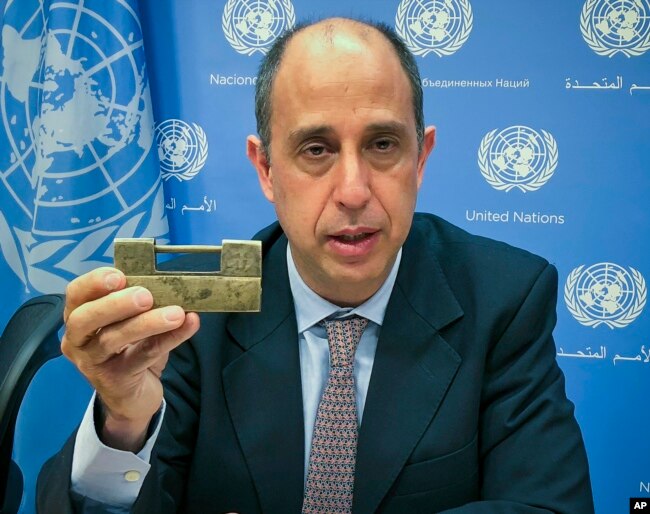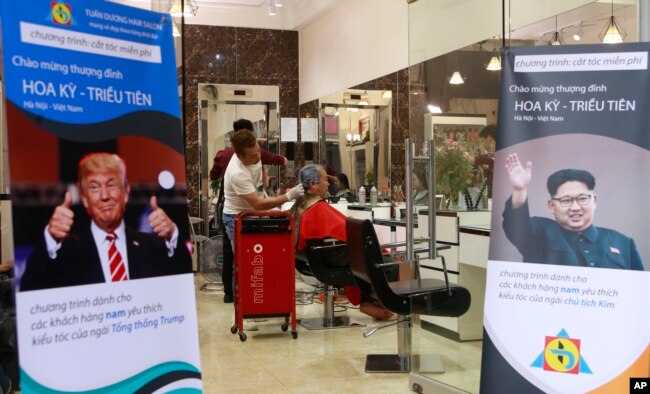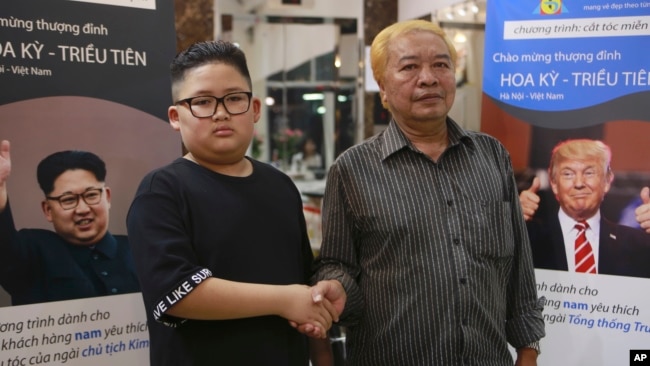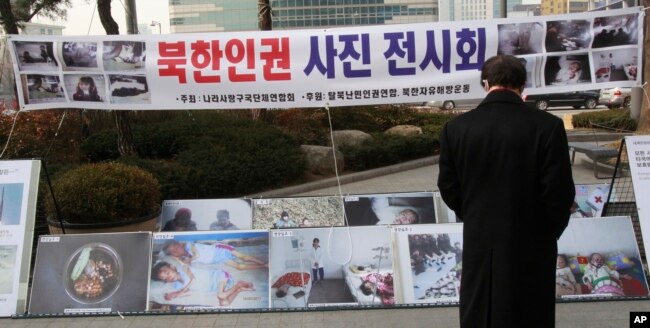North Korea’s human rights issues are likely to be sidelined at the upcoming second summit between Washington and Pyongyang, according to experts, but a top U.N. rights official hopes progress is made on the subject, VOA News reports.
President Donald Trump is scheduled to meet with North Korean leader Kim Jong Un in Hanoi Feb. 27-28, with hopes of making progress on denuclearizationfollowing vague outcomes reached at the historic first summit in Singapore in June.
Trump said he mentioned North Korea’s human rights issues at the first summit, but some observers criticized him for what they saw as shrugging off Pyongyang’s human rights record while meeting with Kim.
Tomas Ojea Quintana, U.N. special rapporteur for human rights in North Korea, stressed that it is important “North Korea meets and starts a dialogue” with U.N. officials, and said he hoped Trump would raise the subject of human rights at the summit.
“What I would like to see coming from the summit in the upcoming month is concrete and tangible results in regards to the engagement of North Korea with my office,” Quintana told VOA’s Korean service last week. “And that would be the starting point, the starting point to then address substantive issues on North Korea.”
Not a security threat
Other experts, however, say human rights are unlikely to be on the summit agenda because North Korea’s violations of international norms do not directly threaten U.S. security.
Ken Gause, director of the International Affairs Group at the Center for Naval Analyses, said, “If the United States is planning on going in there and trying to make some headway on denuclearization, they will probably not say anything about human rights, or keep it to a minimum.”
Robert Manning, a senior fellow at the Atlantic Council, said human rights were unlikely to be discussed because the subject “does not impact the U.S., its allies, and other [countries] of Northeast Asia in anything like the existential threat of missile and/or nuclear attack.”
Some experts also warn that bringing up human rights with North Korea in the early stages of negotiations on denuclearization will be counterproductive.
“If [Trump] wants to get anything done with North Korea, he probably shouldn’t bring it up, because North Korea will recoil against any attempts to lecture them on human rights,” said Gause.
John Feffer, director of Foreign Policy in Focus, agreed, saying, “I believe if the United States wants to get a deal on North Korea’s nuclear program, it should stick to talking about national security questions.”
‘Code’ for regime change
Manning said mentioning human rights to North Korea, which “terrorizes its citizens to maintain order and social control,” will be seen as “a code word for regime change.”
Quintana agreed, adding, “North Korea has seen the issue of human rights for decades as an issue used for political purposes, an issue used to change the system of North Korea.”
Experts said human rights would most likely be brought up in the future if there were improvements in North Korea’s relationships with the U.S. and the international community.
“Human rights needs to be solved as an organic process as North Korea evolves its relationship with the outside world,” said Gause. “So you have to hope … that human rights will come along with North Korea becoming a much more responsible nation and treating its citizens with more respect as it becomes a nation that interacts with the outside world.”
Manning said, “I suspect if we move forward with U.S.-[North Korea] normalization talks, human rights will have to be addressed in that process.”
Don’t wait, some say
Human rights activists, however, think the U.S. should not wait to raise the issue with North Korea.
Greg Scarlatoiu, executive director of the Committee for Human Rights in North Korea, said, “Waiting until the establishment of liaison offices, or even the establishment of diplomatic relations with North Korea, will be akin to capitulation on the human rights front.”
The U.S. may set up a liaison office in Pyongyang, CNN recently reported, and the U.S. agreed to establish “new relations with North Korea” in the joint statement issued at the Singapore summit.
If the U.S. does not bring up human rights at the upcoming summit, Phil Robertson, deputy Asia director for Human Rights Watch, thinks it will send a message “giving Kim the green light to continue his horrific repression of the North Korean people.”
Quintana pointed to various North Korean human rights violations, including the denial of freedom of the press, religion and expression. He added that among more severe abuses such as forced labor, the most critical issue to address is North Korea’s treatment of political prisoners.
“I publicly urged North Korea … to release all the political prisoners who are being detained in North Korea in those camps which are closed to any kind of [international] monitoring,” said Quintana.
Scarlatoui said North Korea must grant U.N. human rights officers access to its political prison camps for “the ultimate goal” of “the full, final, verifiable dismantlement of North Korea’s prison camp system.”
Approximately 120,000 people are estimated to be held in political prison camps, subject to torture and forced labor.
Resolution in Congress
U.S. Rep. Mike Conaway, a Texas Republican, introduced a resolution this month calling for North Korea to dismantle its labor camps. The resolution also calls on the international community to issue targeted sanctions on North Korean officials responsible for committing crimes against humanity.
Quintana stressed that improving its record on human rights will be crucial if North Korea wants to develop its economy.
He said, “The international community … starting this process of engagement with North Korea needs to understand that one of the partners in the agreement will be a country with this kind of political prison camps, and that cannot be accepted.”
Feffer also thinks North Korea needs to address its human rights conditions if it wants to open up its economy. “At a certain point … North Korea will find that the scale of human rights abuses will prove to be a deterrent to outside investment … participation in multilateral institutions, perhaps even bilateral trade,” said Feffer. “That’s when the government will have to make some hard choices about the direction of its internal policies.”




